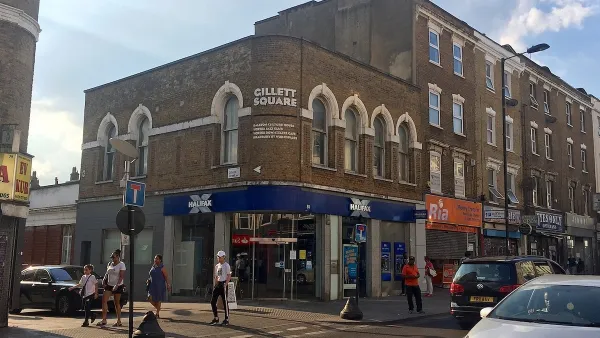The directory aims to help governments and organizations improve planning practices to build healthier, more resilient communities.

The World Health Organization (WHO) has launched a resource directory to help planners and officials build healthier environments and reduce air pollution in urban spaces. “The directory, comprising nearly 200 open-access resources, serves as a vital online repository which offers invaluable insights and tools to promote the creation of healthier environments and enhance the well-being of communities worldwide.”
In a press release, the WHO highlights the link between planning and public health. “The way we plan and build our cities, towns or neighborhoods plays a big role in health promotion and disease prevention. Prioritizing health in the planning and design of our living environments is crucial to reduce health risks and improve the well-being of all communities.”
The directory is designed to be a centralized repository of resources such as “tools that quantify the health and/or socioeconomic impact of planning and designing urban areas from a health perspective,” successful examples, and training materials and webinars on urban planning and health.
FULL STORY: WHO launches directory of resources for planning healthy environments

Maui's Vacation Rental Debate Turns Ugly
Verbal attacks, misinformation campaigns and fistfights plague a high-stakes debate to convert thousands of vacation rentals into long-term housing.

Planetizen Federal Action Tracker
A weekly monitor of how Trump’s orders and actions are impacting planners and planning in America.

In Urban Planning, AI Prompting Could be the New Design Thinking
Creativity has long been key to great urban design. What if we see AI as our new creative partner?

King County Supportive Housing Program Offers Hope for Unhoused Residents
The county is taking a ‘Housing First’ approach that prioritizes getting people into housing, then offering wraparound supportive services.

Researchers Use AI to Get Clearer Picture of US Housing
Analysts are using artificial intelligence to supercharge their research by allowing them to comb through data faster. Though these AI tools can be error prone, they save time and housing researchers are optimistic about the future.

Making Shared Micromobility More Inclusive
Cities and shared mobility system operators can do more to include people with disabilities in planning and operations, per a new report.
Urban Design for Planners 1: Software Tools
This six-course series explores essential urban design concepts using open source software and equips planners with the tools they need to participate fully in the urban design process.
Planning for Universal Design
Learn the tools for implementing Universal Design in planning regulations.
planning NEXT
Appalachian Highlands Housing Partners
Mpact (founded as Rail~Volution)
City of Camden Redevelopment Agency
City of Astoria
City of Portland
City of Laramie





























